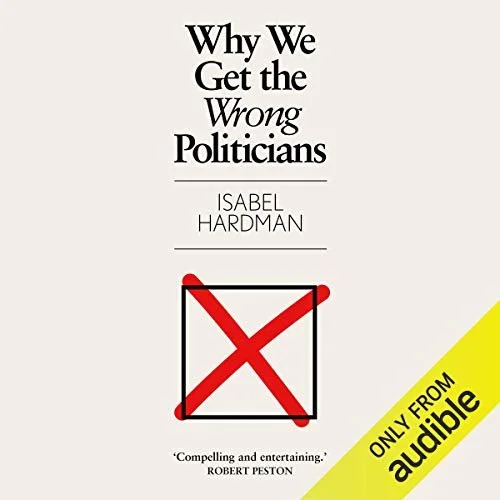This Land by Owen Jones: Essential reading
In 2015, along with over 250,000 others, I voted for Jeremy Corbyn as leader of the Labour Party. We all know how that ended. If, like me, you have been preoccupied with how things could have been different since last December’s disastrous election, Owen Jones’ new book, This Land: The Story of a Movement, is essential reading.
It’s difficult to think of another commentator more widely maligned for his work than Jones. He’s risen to the unenviable position of a top hate target for the far-right, up to and including being beaten up by thugs in an unprovoked street attack. For centrists, who make up the majority of the non-right-wing commentariat, he’s worthy only of contempt. Such is life if you have the temerity to be a socialist with a media platform (see also: Ash Sarkar). Yet, on the left, he sometimes receives abuse for daring to honestly criticise the failures of the Corbyn project.
This is the context into which This Land has been released. In short, it’s a book that almost everyone has made up their minds about without reading it. Which is a pity, because it may well not be what you expect.
This Land is the story of the Corbyn movement—where it came from, how it happened, and how it went wrong. As much as he’s castigated from all angles, Jones is perhaps uniquely positioned to write this story.
A journalist and commentator first and foremost, Jones was nevertheless closer to the project than most, being an active supporter of it, whilst never actually being a part of it (interestingly, he was offered jobs by the Corbyn team on several occasions, but declined them). If Jones wasn’t actually present at a given event, chances are he was on first-name terms with plenty of major players who were. This gives the book a fly-on-the-wall perspective we’re unlikely to get elsewhere.
The first section clips briskly through the history of the past decade or so: the 2008 financial crash, austerity, student protests and a moribund Labour party, abstaining on welfare cuts and still banging on about ‘aspiration’ as if nothing had changed. I’m pretty familiar with all this, after all, it’s my generation’s story, but it’s refreshing to read it all from an unashamedly left-wing perspective, as well as to link this directly to Corbyn’s election. Like Brexit or Trump, it didn’t come out of nowhere.
Corbyn’s rise in 2015, as told here, still resonates with me: an unlikely figure of hope, emerging from a party known only by a whole generation as a party of neoliberalism and war, to beat the bland establishment candidates who had nothing new to say.
After this, the book becomes a more unpleasant read. Jones doesn’t spend too long on Corbyn’s enemies; he explains early on that the project was bound to attract ire from all the obvious angles. This is a good thing: after all, this is the part we all know. What is far more interesting is what I wasn’t previously aware of – the dysfunctional inner workings of the project.
Jones unflinchingly demonstrates that the problems of the Corbyn project were, first and foremost, a failure of management. Reading the latter chapters it is difficult not to be shocked how disorganised and unstructured the whole set-up was. Senior figures like Karie Murphy and Seumas Milne may have been individually highly skilled, but effective managers they certainly were not.
Potentially vital, motivated and ideologically enthusiastic people were brought in – then given nothing to do. That Labour’s HQ – then still Blairite-dominated – gave the project a hard time was obvious; what is truly shocking to read is how unprepared the Corbyn team were for practically anything. It wasn’t clear where decision-making authority lay. Corbyn himself, meanwhile, would often simply go AWOL when conflict reared its head.
The antisemitism crisis – which gets a chapter to itself – is an effective microcosm of this problem. This emotionally charged topic isn’t one I wade into lightly, and neither does Jones. You can tell this was not an easy write for him. He’s been a consistent, uncompromising voice for identifying and countering antisemitism on the left, whilst simultaneously calling out those who exploit the issue for their own ends - walking and chewing gum, as he refers to it. But here, too, he shows that the problem was first and foremost one of management failure. A problem that could have been nipped in the bud early on, but was allowed to fester, grow legs, and become ultimately debilitating.
As the recent EHRC report shows, the disciplinary structure wasn’t fit for purpose when Corbyn inherited it. But there was also little attempt at political education for the influx of new members, many newly engaged with politics, regarding what anti-Semitic tropes and conspiracies looked like. This did happen later, to an extent, but it came via Momentum (not that they get much credit for it) and not from the leadership.
A related problem was the lack of a proper media engagement strategy. Relying on well-attended rallies is all well and good, but it isn’t a substitute for a strong media strategy. All too often, the team inadvertently allowed others to set the narrative.
For example, we all remember the furore over Corbyn’s apparent support (dating from before his leadership) for a mural that contained anti-Semitic tropes, but what I didn’t know previously was that the whole episode was totally avoidable. Corbyn was advised to remove his Facebook profile – where the comments were made – upon becoming leader, warned that his entire history would be muckraked by hostile journalists, and he refused. And that was that.
Where were his advisors? Sure, Corbyn was notoriously stubborn, but that shouldn’t have been the end of it. The same mistake was repeated over and over again. Other hills weren’t worth dying on either – like whether or not to sing the national anthem, or the response to the Salisbury poisonings. A decent media strategy, a bit of scenario-planning – even in the context of an overwhelmingly hostile media landscape – could have prevented these becoming as damaging as they did.
This Land is an uncompromising read. For some, who believe Corbyn could do no wrong, it won’t be a message people want to hear. But it is far more than a post-mortem. There’s an explicitly hopeful message here too. Jones argues that it would be too easy just to say that Corbynism was crushed by its opponents, because that makes the logical takeaway that there’s no point. If you believe that any left-wing movement in the UK will inevitably be destroyed, then why bother at all?
However, if you believe that we can learn from our failures and do better next time, then that opens up the viable possibility of a next time. The preconditions and injustices that led to Corbynism have not gone away. There will be a next time.
So, if you want to read an account that argues that Corbynism was a perfect blossom inevitably crushed under the boot of the Labour right and a hostile media, then this is not for you. If you want a book that regurgitates received mainstream wisdom that Corbynism was rotten to its core, and supported by a combination of anti-Semitic old Trots and hopelessly naïve, feckless young people, needless to say this isn’t for you either. But if you want an honest, constructive, ultimately hopeful assessment of the last five years, not something easy to find, then this an absolute must-read.
This Land by Owen Jones is out now. You can also support Owen Jones’ new show on Patreon here.










